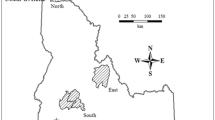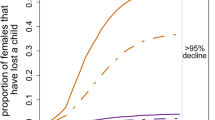Abstract
Much literature invokes natural selection to explain the pervasive deficit in the average lifespan of men compared to women.^1^ The explanation assumes that mothers, not fathers, provisioned children over much of human existence, and that women who lived long enough to help their children and grand children survive to reproductive age had more grandchildren and great-grandchildren than did shorter-lived women.^2^ Although this argument implies that natural selection would conserve mutations that conferred longevity on mothers but not fathers,^3,4^ it offers no explanation of the considerable changes over historic time in the male longevity deficit thereby implying that these arise solely from culture.^5^ I show, however, that natural selection in utero empirically predicts variability over time in the deficit. This mechanism spontaneously aborts less fit fetuses during stressful times and reportedly selects more against males than females. My finding suggests that natural selection interacts with culture to predictably affect both the life span and sex ratio of contemporary human populations.
Similar content being viewed by others
Article PDF
Author information
Authors and Affiliations
Corresponding author
Rights and permissions
About this article
Cite this article
Catalano, R. Natural Selection In Utero Contributes to the Male Longevity Deficit in Contemporary Human Populations. Nat Prec (2009). https://doi.org/10.1038/npre.2009.3915.1
Received:
Accepted:
Published:
DOI: https://doi.org/10.1038/npre.2009.3915.1



